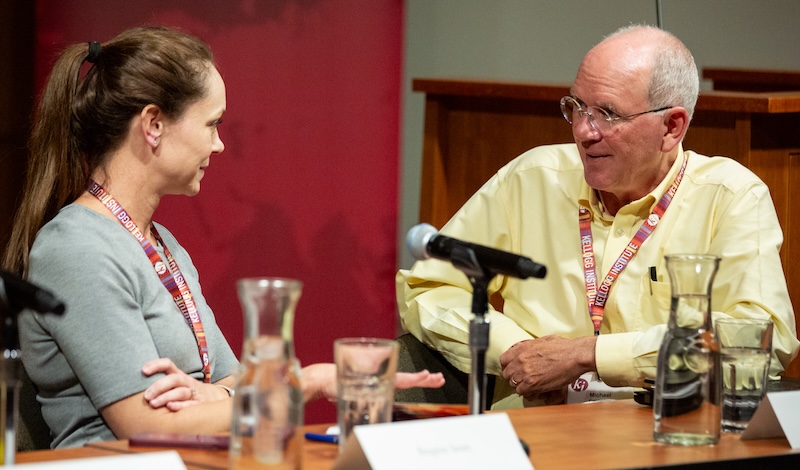 About the Episode:
About the Episode:
Interviewed by Kellogg Doctoral Student Affiliate
Patrick McQuestion, political scientists
Michael Coppedge (University of Notre Dame) and
Brigitte Seim discuss measuring democracy through the Varieties of Democracy, or V-Dem, Project. V-Dem aims to conceptualize and measure different forms of democracy, emphasizing the importance of disaggregating data to gain a nuanced understanding of democratic trends. Our guests discuss the project's approach to conceptualization, the role of practitioner-academic partnerships, and the importance of measuring and mitigating anti-democratic phenomena online. They also explore various strategies for promoting democracy and addressing polarization, with a focus on understanding patterns of behavior in settings with malicious governments.
Show Notes:
Welcome to Global Stage, a podcast highlighting academic and policy-oriented international research on democracy and human development! Global Stage is brought to you by the Kellogg Institute for International Studies, part of the Keough School of Global Affairs at the University of Notre Dame. Your host today is Kellogg Doctoral Student Affiliate Patrick McQuestion. His guests are Michael Coppedge, professor of political science at the University of Notre Dame, and Brigitte Seim, associate professor of public policy at the University of North Carolina-Chapel Hill.
To begin, Michael shares about the Varieties of Democracy Project, or V-Dem, and how it is used for measuring democracy. Most projects define a regime type and then classify countries into a regime type, but V-Dem recognizes five different types of democracy: electoral, egalitarian, deliberative, liberal, and participatory. Then V-Dem breaks down each of these concepts into separate components, and then gets more granular down to 175 specific concepts. With this data, one can combine the specific measures into more general concepts of democracy. They present these concepts with options and define some definitions for everyone based on the premise that everyone has a continuous dimension and then identify their country on the scale. This creates a continuous measure of democracy. Brigitte shares two aspects of activities she is involved in: ensuring that the data they collect in V-Dem is comparable, so you can learn something by comparing cross nationally and secondly, that aggregation is from a variety of experts to one country. Her role is working on the comparability side with hypothetical cases and also on the expert side of things: reliability, recruit, and retain experts.
Turning to their substantive research, Michael discusses the diffusion of democracy, or how democracy in one place might affect another place. Michael looks for patterns and tests hypotheses related to the networks that link countries together, such as alliances and current or former colonial ties. Michael argues that we lose valuable information when we combine specific indicators into general ones, so if you don’t have to, then don’t do it. There is more richness available if you use the specific indicators that they have. In describing emerging themes from the Global Democracy Conference, Brigitte identifies the drive for disaggregation and focus on antidemocratic movements. They also discuss how social media is used negatively for various purposes and how a series of surveys helps them understand patterns on democracies.
Listen below, ask your smart device to “play Global Stage Podcast,” or find us on:
Apple | Spotify | Stitcher | iHeartRadio | TuneIn | YouTube
 About the Episode:
About the Episode:




